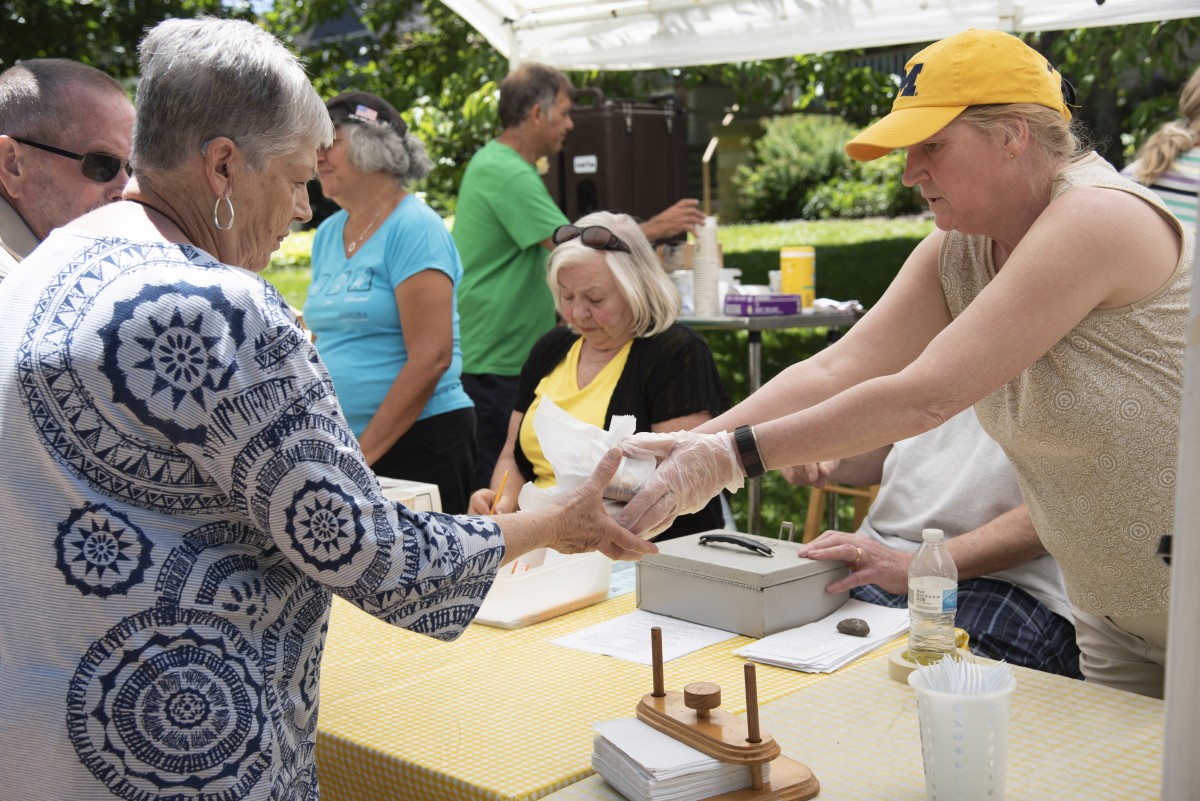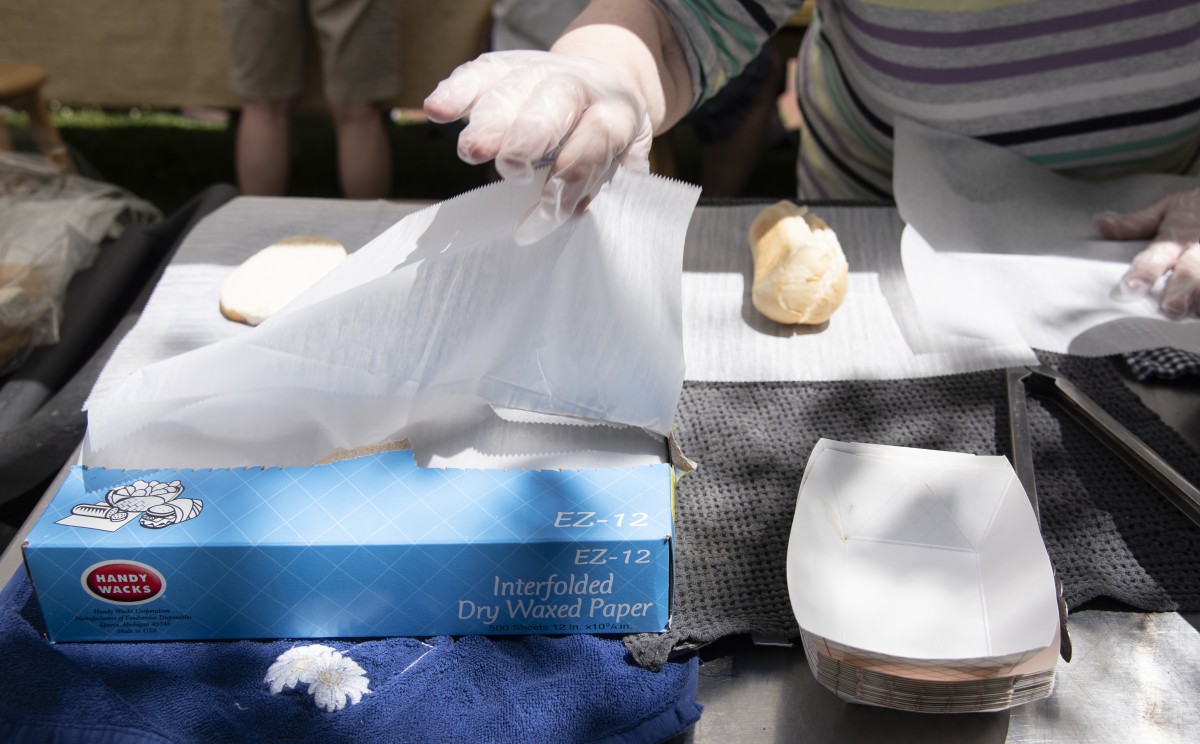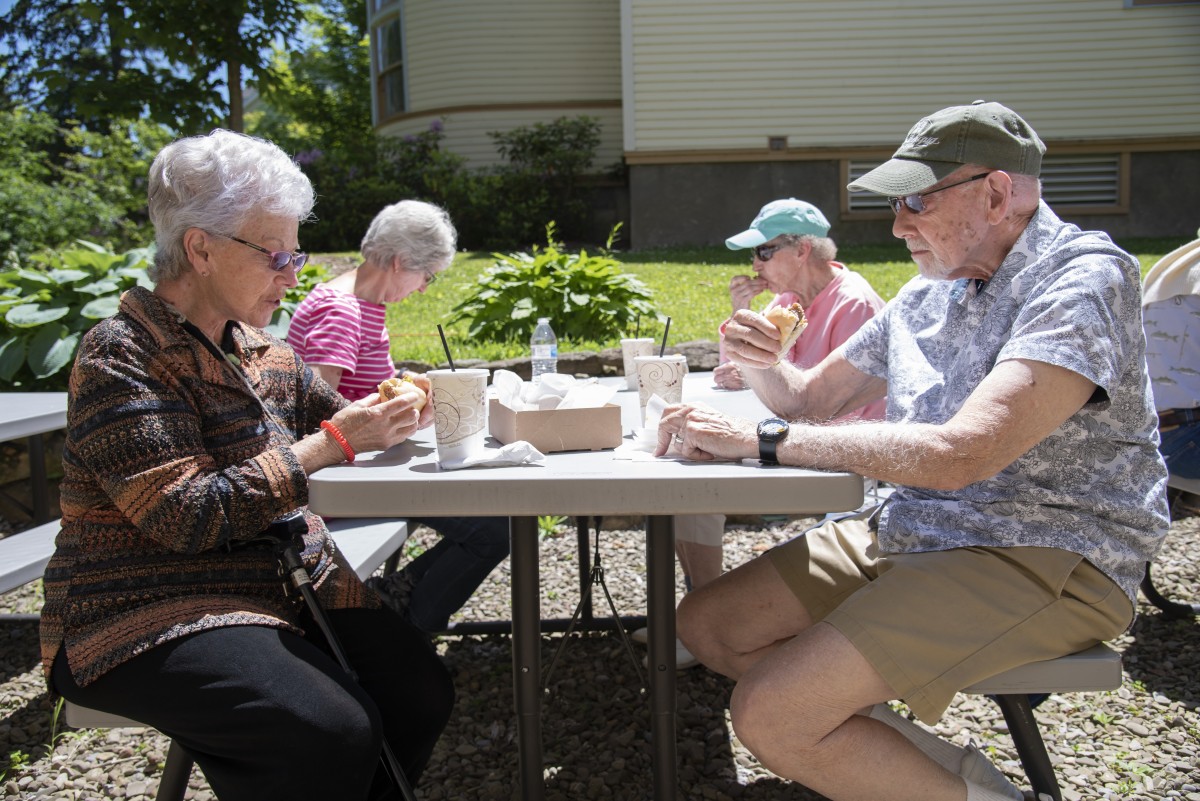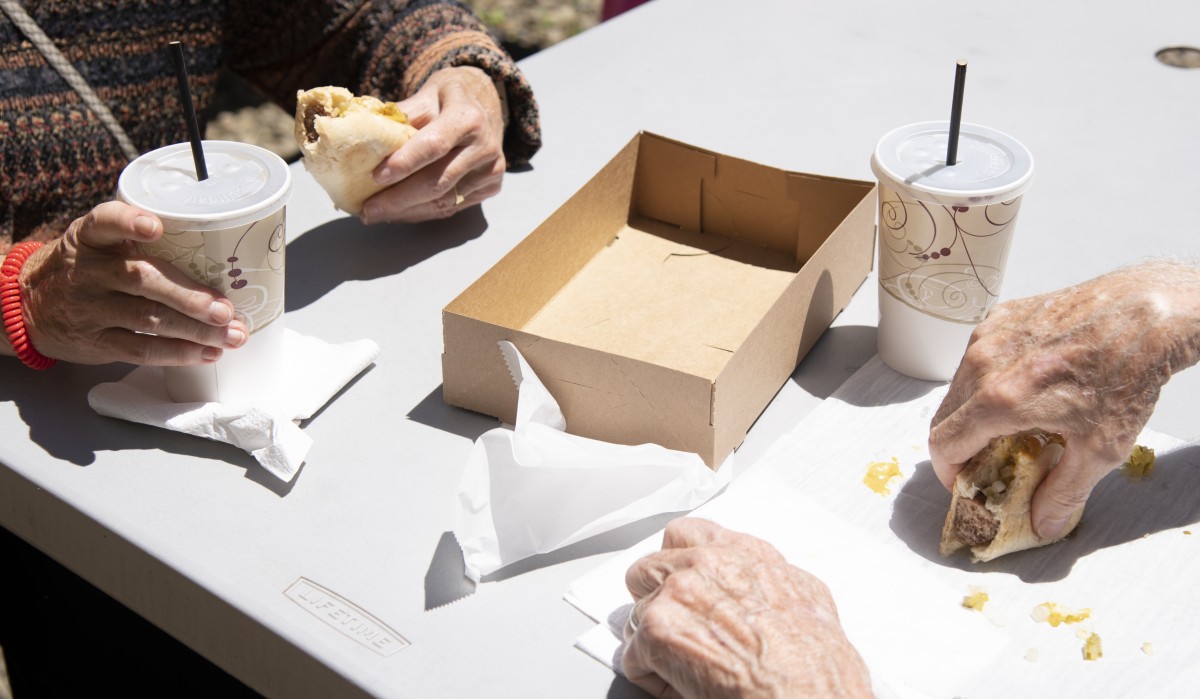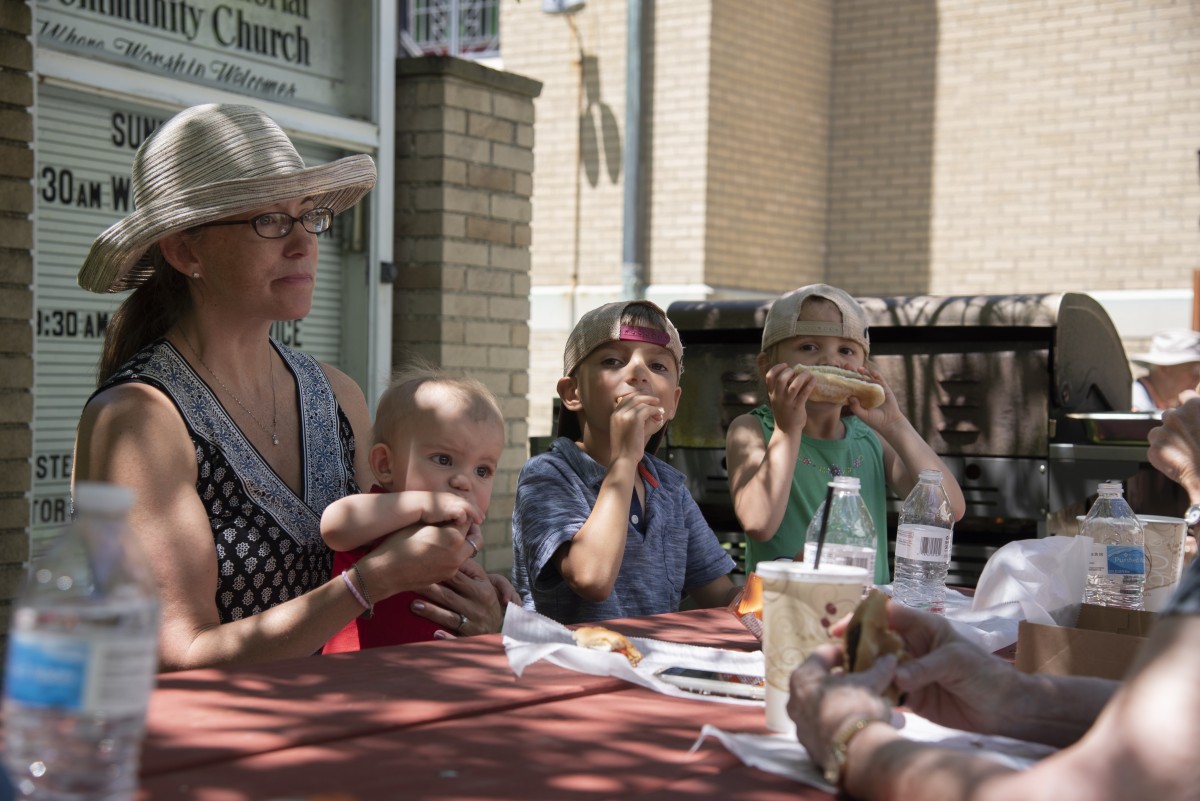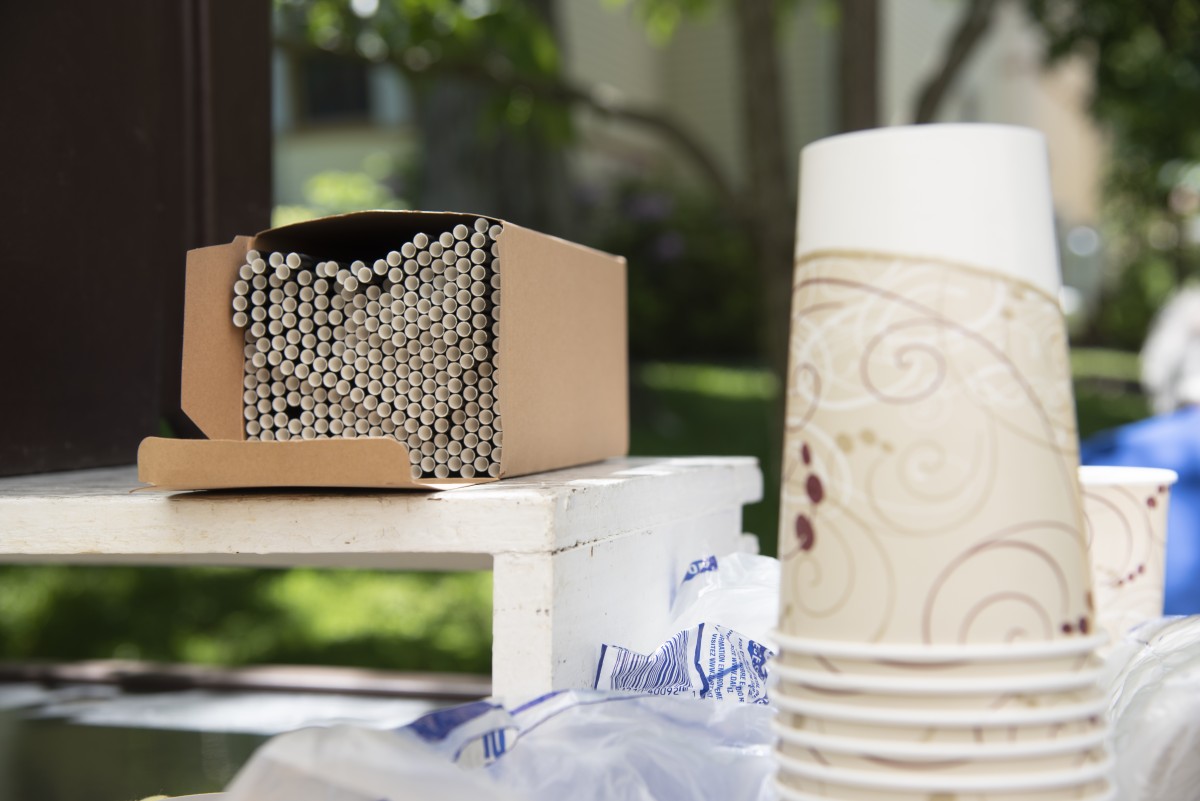The Hurlbut Church Meal Ministry is going green.
Chautauquans who attend the church’s weekday lunches or Sunday lemonade stand and barbecue will notice that the styrofoam takeout containers and plastic straws previously used by the church have been replaced with more environmentally-friendly alternatives.
“We really are trying to do our part for the environment,” said Debbie Caruso, ministries coordinator at Hurlbut.
Hurlbut Church started the transition last year, using biodegradable plates at the weekday lunches and giving people the option to utilize reusable plates and glasses. This year, styrofoam takeout containers have been replaced by ones that biodegrade. The church will hand out paper straws instead of plastic ones.
“This year, the leaders at the church decided that they really just wanted to jump in and go all green,” Caruso said.
The meal ministry has been serving food to Chautauquans for about 30 years, Caruso said. During the summer season, lunch is served Monday through Friday, dinner is served on Thursday nights and a lemonade stand and barbecue take place on Sundays.
The proceeds from the meals — about $35,000 to $40,000 per year — are donated to a number of organizations, including Habitat for Humanity, Chautauqua County Rural Ministry and food pantries in Ashville, Mayville and Westfield.
Thursday night turkey dinners at the church have always been served on traditional dinner plates and with metal silverware.
Plastic utensils are still used at the weekday lunches, although customers can request metal silverware, Caruso said. The church is decreasing its use of non-biodegradable materials as more and more restaurants and other establishments have been moving away from the use of plastic straws. The push came after images of sea turtles with straws up their nostrils went viral last summer.
Maine Gov. Janet Mills just signed a bill that will ban restaurants, caterers and grocery stores from using styrofoam takeout containers beginning Jan. 1, 2021, and since January of this year, restaurants in California are not allowed to give out plastic straws to customers unless they explicitly ask for one. A prohibition on plastic straws and utensils in Seattle restaurants and bars went into effect last summer.
Plastic never decomposes, instead breaking into smaller and smaller pieces called microplastics that pollute the ocean, leach harmful chemicals into the environment and can end up in drinking water. A study published in the journal Current Opinion in Environmental Science & Health in 2019 found microplastics in 81% of 159 samples collected from tap water in 14 different countries.
Many types of plastic can be recycled, but only for a limited number of times as the material becomes weaker each time it is reprocessed.
Styrofoam is made out of a petroleum-based plastic, an unsustainable resource. The production of Styrofoam involves hydrofluorocarbons, a chemical compound that is harmful to the ozone layer. Styrofoam also does not decompose.
The meal ministry kicked off with a lemonade stand and barbecue on Sunday, and will continue throughout the nine weeks of the summer season.
Lunch is served from 11:45 a.m. to 1:15 p.m. on weekdays and includes menu options such as quiche, taco salad, turkey, salad plates and vegetable wraps. Each meal comes with a cookie and a beverage.
A turkey dinner, including stuffing, mashed potatoes, vegetables, cranberry sauce and dessert, is served from 5 to 7 p.m. on Thursdays.
The lemonade stand is open from 9:30 a.m. to 2 p.m. on Sundays. Pastries, coffee and dog bones are available before the morning service in the Amphitheater begins. In the late morning, volunteers fire up the grill and serve hamburgers, hot dogs and Italian sausages.
Lunch and dinner are served in the church’s dining room on long tables covered in gingham-patterned tablecloths. The lemonade stand and grill on Sundays can be found outside in front of the church. Takeout is available for all meals.
The purchase price of the green products for the church is about twice that of the less sustainable alternatives, Caruso said. The lunch price was raised from $8 to $9 this year to help compensate for the greater expense of the paper products, as well as rising food costs.
Caruso said the church typically serves about 100 people during each weekday lunch, and 200 people during the Thursday night dinners. She said she loves seeing Chautauquans connect over a meal.

